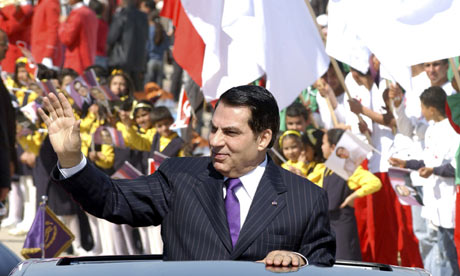This commentary was published in The Daily Star on 18/12/2010
It is refreshing and worrying to discuss Middle Eastern issues with friends, colleagues and knowledgeable people in the United States these days. It is refreshing because most people are convinced that Washington is serious about working hard for a resolution of the Arab-Israeli conflict. It is worrying because Washington is serious about working hard for a resolution of the Arab-Israeli conflict.
The problem, it seems obvious from discussions with people with inside knowledge of what is going on in both the United States and Israel, is that the Obama administration’s energy and emphasis on the negotiating process lacks the needed vision of what a permanent settlement would look like and what the US sees as a fair resolution for all concerned.
This Israeli government, however, has a clear vision of what it wants as a final arrangement but most of the world rejects its demands as too ambitious and unfair to the Palestinians, while the more moderate Israeli public is content to let the right-wing government carry the day for now. And the Palestinians and the rest of the Arab world have both a clear vision of a comprehensive peace agreement and the negotiating means to get there, but they lack the leverage to generate any movement in that direction.
The US special envoy to the Middle East peacemaking process, George Mitchell, is in the region this week and has spoken of working to move the parties towards forging a framework agreement. This follows the bitter US experience of the past two years, when pressure, cajoling, enticements and one outrageous bribe attempt failed to move the Palestinians and Israelis, both of whom rebuffed US demands in their own ways.
The United States’ good intentions, lofty rhetoric and energetic action clearly are insufficient to move the parties toward an agreement. So it seems that one option now being considered is to put on the table American compromise ideas for a settlement. If the US moves in this direction, all the signs are that it will not generate much progress if all other things remain as they are – in other words if the Arabs and Israelis feel no new incentives or disincentives to change their positions and move faster toward an agreement.
This is being matched, in the meantime, by two possible initiatives from the Palestinians: to obtain European and global recognition of a Palestinian state within its 1967 borders; and to go to the United Nations and seek a resolution on Palestinian statehood.
Both of these are worthy goals, but neither will generate sufficient energy to move the parties toward making the hard decisions needed to break through the stalemate of the past 17 years, ever since the Oslo Accords were signed. The occupied, exiled and besieged Palestinians are the ones suffering the most today, and they have the most incentive to move things forward diplomatically, but the least leverage to do so. The Israelis have both the power and the incentive, but seem to lack the will to do so, believing perhaps that they can endure the current situation for decades or even generations to come.
Washington, therefore, remains the party everyone looks to for movement to break this stalemate. One American with much experience in the Middle East suggested in private that the reason the US seems stuck in the Middle East is that its efforts are hampered by three I’s: an inability to act; incompetence when it does act; and illegitimacy that sometimes negates any attempt to act. Two other I’s were also suggested: insensitivity and ignorance. This is a hard but probably broadly accurate description of the American experience in the Middle East. This now must be supplemented with a final I: impotence. This is based on the experience of the past two years in failing to move the Israelis and Palestinians forward, despite serious efforts to do so.
Washington, therefore, remains the party everyone looks to for movement to break this stalemate. One American with much experience in the Middle East suggested in private that the reason the US seems stuck in the Middle East is that its efforts are hampered by three I’s: an inability to act; incompetence when it does act; and illegitimacy that sometimes negates any attempt to act. Two other I’s were also suggested: insensitivity and ignorance. This is a hard but probably broadly accurate description of the American experience in the Middle East. This now must be supplemented with a final I: impotence. This is based on the experience of the past two years in failing to move the Israelis and Palestinians forward, despite serious efforts to do so.
It seems quite foolish to look to the Americans to resolve a conflict that has been severely aggravated by American policies that have given Israel the power and diplomatic protection in recent decades to remain intransigent, aggressive and colonial in its attitude to Palestinians and other Arabs. Americans for their part are becoming understandably fed up with being asked to solve a conflict when the parties to the conflict themselves seem less eager to take the steps needed to succeed in finding a resolution. So Americans are increasingly wondering whether they should just drop their efforts and go home.
An important debate is finally starting to take place in the US about what can and should be done to achieve an Arab-Israeli peace settlement, but this debate has yet to fully include a discussion of the consequences of Washington’s own policies and the influence of pro-Israel forces in the State Department and throughout the US political system. Whether the American political system will allow this to occur remains to be seen.


